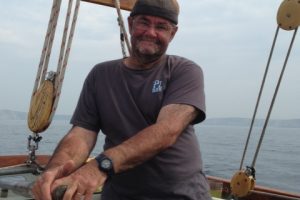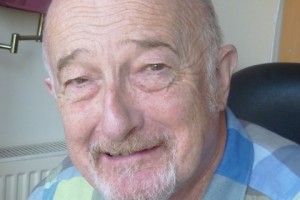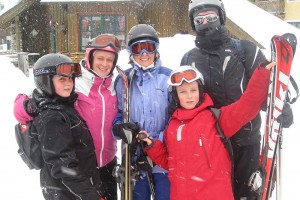Personal stories
Liam’s Story – How holiday food poisoning led to acute kidney injury
Share this on – Facebook / Twitter / Linked In


It was the last few days of a two week family holiday in Turkey that Liam became ill. Due to fly home on the Friday afternoon, Liam (aged 7) had complained of tummy ache on Wednesday night. He had diarrhoea all night. He hadn’t been eating for a few days. The next morning the local doctor, who didn’t see Liam, advised he should be given fluids as they were returning home the next day.
After a difficult flight with Liam still suffering severe diarrhoea the family arrived home. Mum dialled 111 and took Liam to the local hospital. Overnight he had blood in his diarrhoea and following blood tests on the Sunday the doctor explained he thought Liam had a problem with his kidneys and needed to be transferred by ambulance to a specialist paediatric renal unit 120 miles away. Liam’s Mum, Alison was shocked and scared by how ill Liam had become in such a short space of time. She rode in the ambulance to the hospital but couldn’t sit in the back with Liam.
Once at the paediatric renal unit blood tests confirmed Liam had E.coli O157 and haemolytic uraemic syndrome (HUS) and Mum and Dad realised that this was a life threatening illness. Over the next few hours a catheter was inserted into Liam’s tummy so that he could have dialysis as he had stopped passing urine. He also had a feeding tube introduced through his nose. Liam was in pain and couldn’t sleep and appeared to be hallucinating some of the time. He became confused and went to intensive care where he was sedated. The doctors told Alison that Liam had developed brain complications of the HUS. Alison stayed with Liam in the hospital in family accommodation so that she could be with him as much as possible.
“Staff were amazing. They let me lie with him and although he was confused some of the time I was able to cuddle him, and he always knew who I was.”
Three plasma exchanges seemed to work well at first but after two more days he started 24 hour dialysis. Problems with Liam’s heart then surfaced. An ECG showed a pericardial effusion so dialysis was suspended for two days. Nothing was straightforward for Liam. After two blood transfusions he was pale. He was fed through the tube but started to take in a little chocolate milk and banana. This resulted in his potassium levels increasing and this had to be rectified.
A week later Liam was little brighter. He was having dialysis and the diarrhoea had stopped. He was very weak, too weak to get to the bathroom though he was eating a little more. Staff couldn’t tell Liam’s parents if he would need dialysis for the rest of his life, but they explained that they were hoping his kidneys would recover functionality so that he could return to his normal life.
Alison can’t praise the staff enough at the hospital. “The doctors, nurses and physios were so patient with us. I know I asked them the same questions over and over because I just couldn’t seem to take it in. It’s very complex but they understood and were so kind and helpful”.
Of course Liam should have been back at school by this point but he was still poorly. The teacher attached to the unit brought him an iPad to start to think about schoolwork but, Alison told us, he mainly focused on his Candy Crush score! Physio gradually helped Liam to get stronger and on one momentous day four weeks after his admission to the unit he asked for some cereal. This was a turning point, though a faeces test showed E.coli was still present in his body.
Liam progressed to getting dressed, he played on the Wii and started to get some energy back. He pulled his feeding tube out and staff told him he could keep it out if he started to eat. This spurred him on. Blood tests alternate days were a trial but he was allowed out in a wheelchair when his brother visited one weekend, and poor Liam was so exhausted, he fell asleep in the sunshine. There were celebrations when Liam passed urine for the first time and the family were told it was all going well. However the jury was still out on whether or not Liam would need dialysis long term.
Over the next few weeks major milestones were reached; Liam’s first walk up the ward, a visit to the hospital gym where he enjoyed kicking a ball; his feeding tube came out for good; his catheter was removed, and finally his body was free of E.coli.
Liam had been in hospital for over five weeks. He and his family were thrilled that life was getting back to normal. He started back at school part time and gradually built up to full time. Liam is now full of life and has suffered no permanent effects from his illness. Alison says he remembers very little of his time in hospital though he remembers his favourite nurse, the injections and not being able to walk. He remembers his Mum crying. Alison remembers that it was the worst time ever. She also remembers how amazing the staff were and the special time the family had when Liam came home. Liam will be followed up by his GP and local hospital.
The consultant paediatric nephrologist who cared for Liam is sure the Haemolytic Uremic Syndrome, of which acute kidney injury is a feature, was the result of food poisoning. While it’s not common he stated that it is often found as a result of holiday food poisoning in children, and can cause major stress and concern for a family abroad and away from the medical care they are used to.
Most children who develop AKI which requires dialysis have to travel to a regional paediatric renal unit, often many miles away from their home. This has a major impact on the normal functioning of the family if one parent stays with the child, and a lot of support is required.
Children can be extremely sick with HUS and can be very traumatised from the frequent venepunctures and other painful procedures they experience. There is a need for long-term follow-up post AKI, particularly for children like Liam who have HUS.
Personal stories






